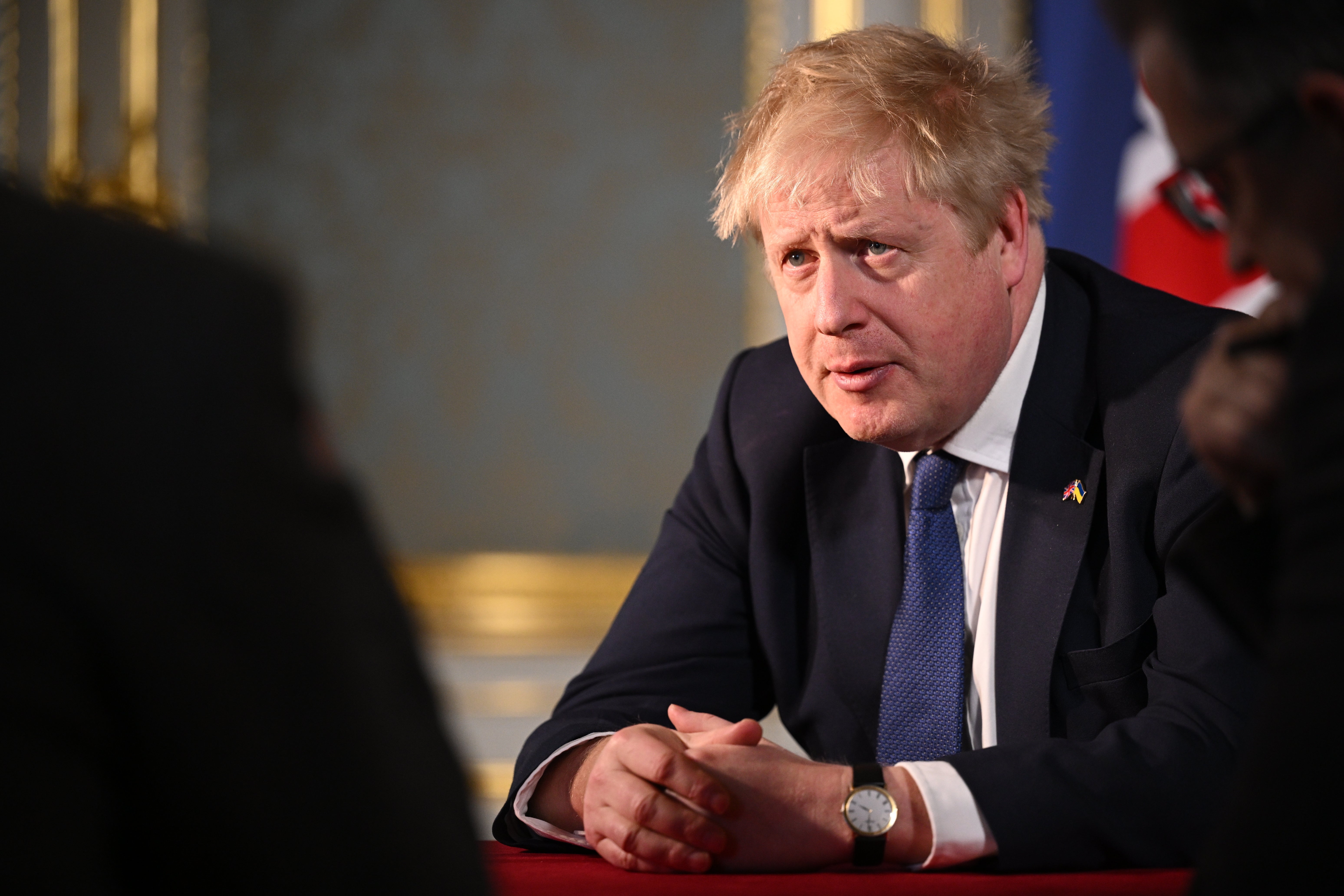Boris Johnson presents himself as the leader of Europe’s fight against Russia – but is he really?
A better relationship with France before the war could have given Johnson real influence, but needless post-Brexit tensions and silly point-scoring have left a cloud


Boris Johnson is presenting himself as leader of Europe’s fight against Russia. He sensed an opening, given Angela Merkel’s departure and Emmanuel Macron’s weakened authority after his naivety during his talks with Vladimir Putin before the invasion of Ukraine.
This week, Johnson has hosted two London summits with fellow leaders in the anti-Putin coalition – the first with Canada and the Netherlands, the second with Poland, Hungary, the Czech Republic and Slovakia. His campaign was boosted when Volodymyr Zelensky, Ukraine’s remarkable president, told him “we are very grateful to you, Boris”, in his moving speech to the Commons.
Good pictures, and yet Johnson’s pitch to be leading Europe is ridiculed in EU capitals. Diplomats note that UK ministers talk up the role of Nato and the G7 – but barely mention the EU’s. “The UK wants to give the impression it is leading in Europe but it is not,” one said. “The truth is that we miss the UK’s strategic thinking on security. It could have been a key voice in the EU debate. But it is now irrelevant to it”.
French officials tell me that if the UK were still an EU member, Paris would now be reaching agreement with London first before putting a proposal to Berlin because it trusts the UK’s instincts and experience on security more than Germany’s, despite Olaf Scholz’s surprise and historic conversion to supplying arms to Ukraine. When we look back at Europe’s biggest crisis since the Second World War, the German chancellor, rather than Johnson, might emerge as the continent’s real leader.
A better relationship with France before the war could still have given Johnson real influence, but needless post-Brexit tensions and silly point-scoring between Johnson and Macron left a cloud. So, there isn’t close coordination between Britain and France over Ukraine. True, Johnson can grab a few headlines and praise for his statesmanship from Tory MPs (though he will welcome the good reviews he is now getting from them given his weak position at the start of the war). But to the EU, it’s “just spin”, as one official put it.
I’m not talking about rejoining the EU. I’m an ex-Remainer but not a Remoaner. We are staying out. But that doesn’t mean we can’t forge a constructive relationship with those Johnson calls “our EU friends and partners”. He should end his phobia about dealing with EU institutions which makes him rely on bilateral contacts with member states.
Talk of a new “EU plus one” alliance with the UK is premature. Liz Truss’s invitation to attend a meeting of EU foreign ministers was not supported by all the EU’s key players. Josep Borrell, the EU’s high representative for foreign affairs, took the decision, despite the doubts of Ursula von der Leyen, the European Commission president and Charles Michel, president of the European Council.
To keep up to speed with all the latest opinions and comment sign up to our free weekly Voices Dispatches newsletter by clicking here
While EU figures welcome Truss’s positive approach, they remain wary of Johnson. “No one trusts him one bit,” one diplomat told me. Johnson damaged “Global Britain’s” image around the world by ripping up an international agreement he signed, the Northern Ireland protocol, and by cutting the overseas aid budget by £4bn. Ironically, the EU is now filling the aid gap in Africa, spreading its influence at the UK’s expense: another triumph for the PM.
Johnson’s aspirations on the world stage have also been set back by the Home Office’s chaotic, slow and grudging response to Ukrainian refugees.
It’s time for Johnson to move on and into the new world in which the UK is rightly fighting a real war, rather than a juvenile war of words with its natural ally and biggest trading partner. If not now, when?
It shames the country and is another terrible advert for Global Britain. The underlying cause is the same Brexit mentality preventing proper relations with EU institutions. “We have a big heart in this country,” Grant Shapps, the transport secretary, argued on BBC Radio 4 this morning. Yet the obsession with having “control” of our borders trumps the government’s compassion. For once, the Brexiteers are out of tune with the public on immigration; six out of 10 people want to waive visa requirements for Ukrainian refugees and only 15 per cent oppose the idea, according to Savanta ComRes.
Even the Tories’ Brexit cheerleaders at The Daily Telegraph, the Daily Mail and The Sun are appalled. Priti Patel’s cabinet colleagues and many Tory backbenchers are worried she is trying to tweak the UK’s bureaucratic system rather than acknowledge the obvious need to create a new one for this emergency. Johnson’s lack of confidence in Patel is reflected in his decision to appoint a minister for refugees, Richard Harrington, outside the Home Office.
Join our commenting forum
Join thought-provoking conversations, follow other Independent readers and see their replies
Comments
Bookmark popover
Removed from bookmarks